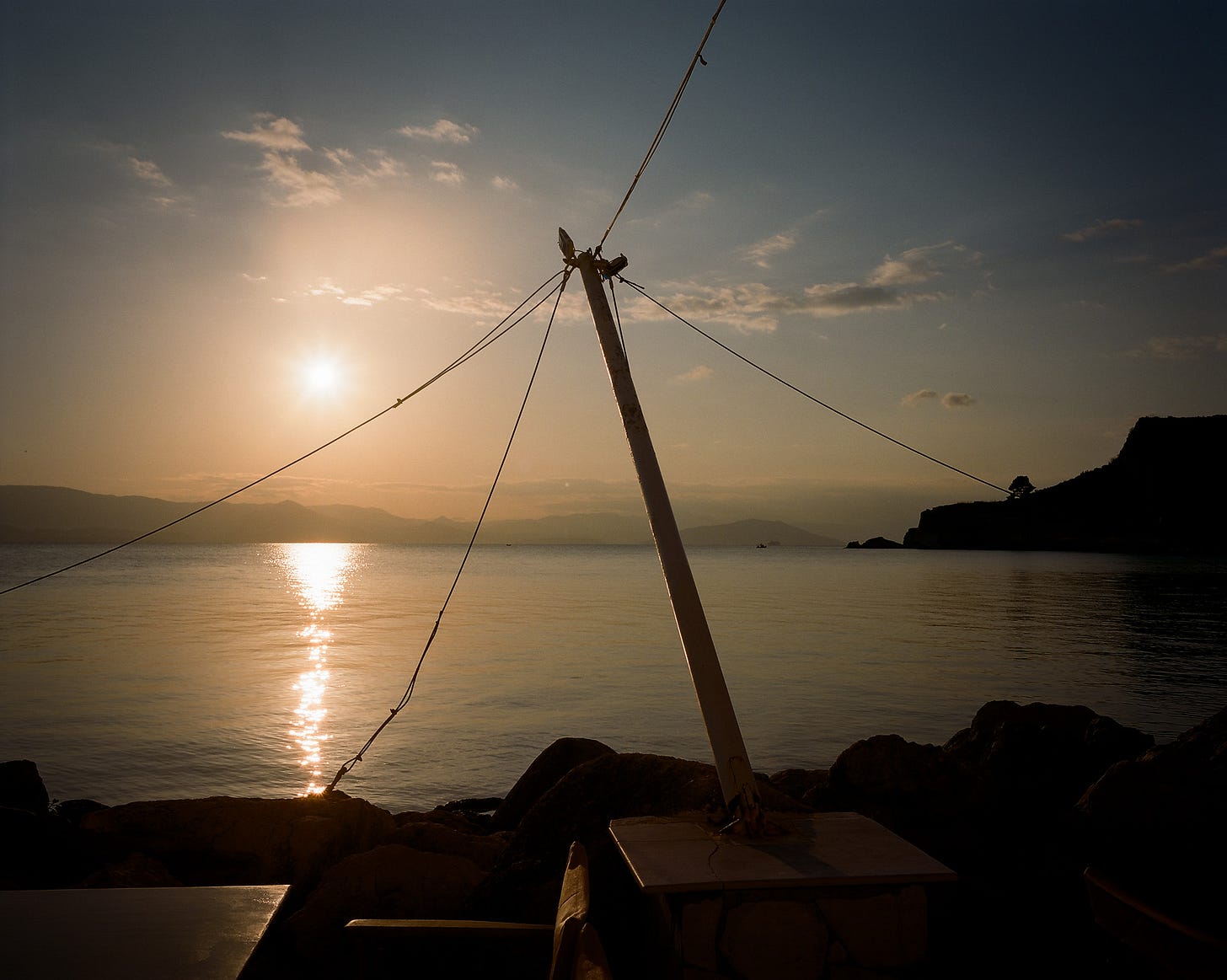Anatomy of an assignment
Behind the scenes in Corfu: creative process, practicalities, & improvisation
In April I went to Corfu, Greece, on one of those commissions that comes around once in a blue moon: one where your own interests and the subject matter perfectly align, with just enough space and novelty to leave something still to be discovered.
The assignment was part of The Atlantic’s ‘Literary Travels’ series, for which writers go to destinations that speak to the work of a favourite author or book. I’d be in Corfu with Honor Jones on the tail of John le Carré, who had his own history with the island, and who set a few key scenes in his 1986 novel A Perfect Spy there.
The brief was both intriguing and satisfyingly open — and, as such, the assignment was as much a great invitation as it was a puzzle to solve. How to capture the spirit of espionage and alter egos, the stuck-in-the-past Britishisms of Corfu, and a feeling of le Carré’s post-Cold War unease, all in the perfect gorgeousness of spring on a Greek island? I planned to find out.
Behind the scenes on assignment work
Inspired by queen Dina Litovsky’s impeccable assignment reporting (I especially loved her account of photographing one of her heroes, Ringo Starr) I’m going to share a diaristic account of the commission, from top to bottom — creative process, problem-solving, my go-to workflow — and the anecdotes behind it all, the background details that are often the subject I find most interesting as a photographer: the way that a picture shows just a fragment of what it took to make it, and often conceals that making entirely.
I’ll get into the fine detail of what happened on this particular assignment in Corfu — practically, personally — and talk through how I built out the photo story, including:
how it all happened logistically (timeframe, equipment, planning)
workflow (gear, pacing, editing process)
three difficulties I ran into — inevitable on assignment — and how I worked with them (in this case: access denied! Equipment breakdown!)
the images that made the edit versus those that didn’t — I’ve always loved looking at photographers’ contact sheets, seeing how the greats thought through a moment and what the edit brought out, and so in that spirit I’m including some of my hits and misses here below
And so, without further ado…


